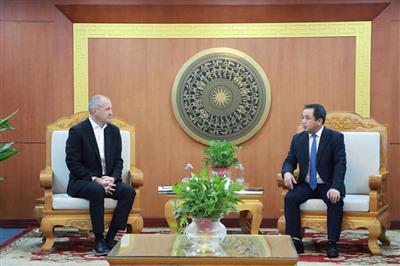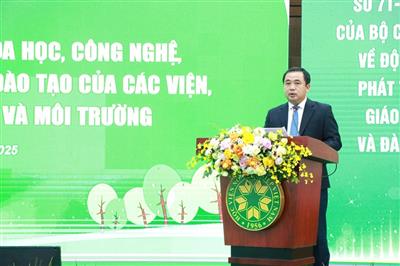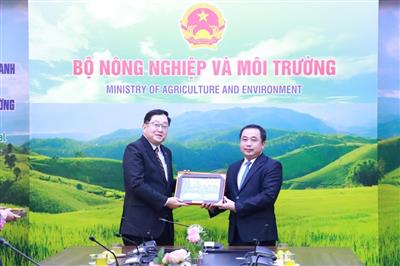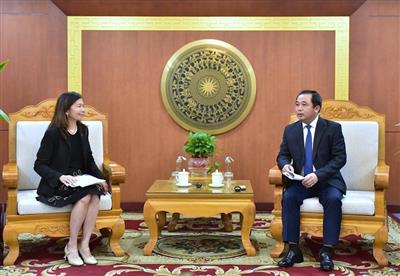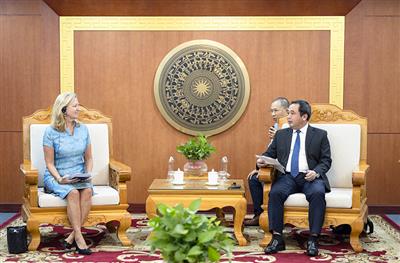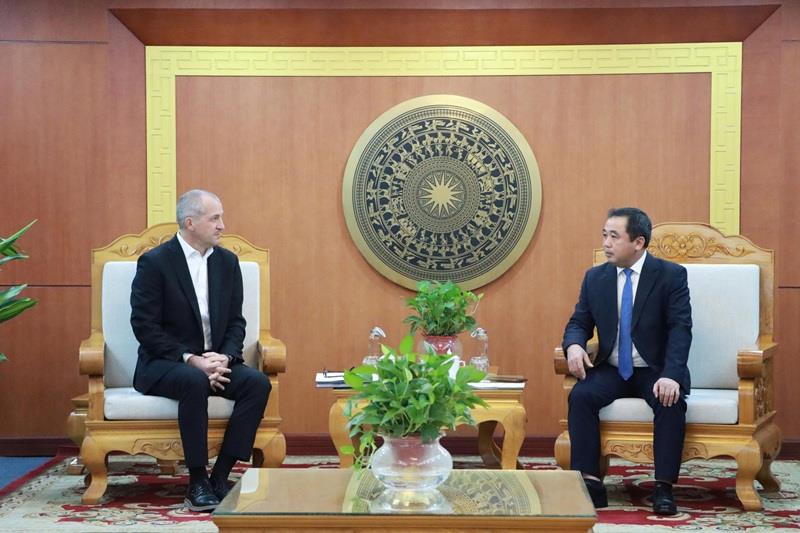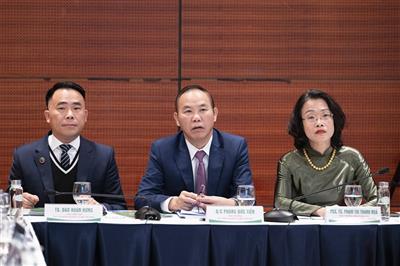
Vietnam affirms its pioneering role in global cooperation against plastic pollution
10/07/2025TN&MTAs plastic pollution emerges as one of the most pressing global environmental challenges, Vietnam has taken proactive steps to establish multistakeholder cooperation mechanisms, promote transparent data, mobilize financial resources, and actively engage in the negotiations of the Global Plastics Treaty. The sixth meeting of the National Plastic Action Partnership (NPAP) Working Group, co-organized by the Ministry of Agriculture and Environment, UNDP, and the World Economic Forum (WEF) in Hanoi (9-10 July 2025), reaffirmed Vietnam’s commitment not only to act domestically but also to stand with the international community in building a circular and sustainable economy.
Vietnam in the global fight against plastic pollution
Plastic pollution has become one of the world’s most serious environmental challenges. International studies estimate that the oceans currently contain around 24 trillion microplastic particles, now found in water, sediments, marine life, and even human tissue. The consequences extend beyond the environment, with significant economic and social impacts: tourism, fisheries, and coastal livelihoods are suffering losses estimated at up to 15% of annual income due to plastic pollution.
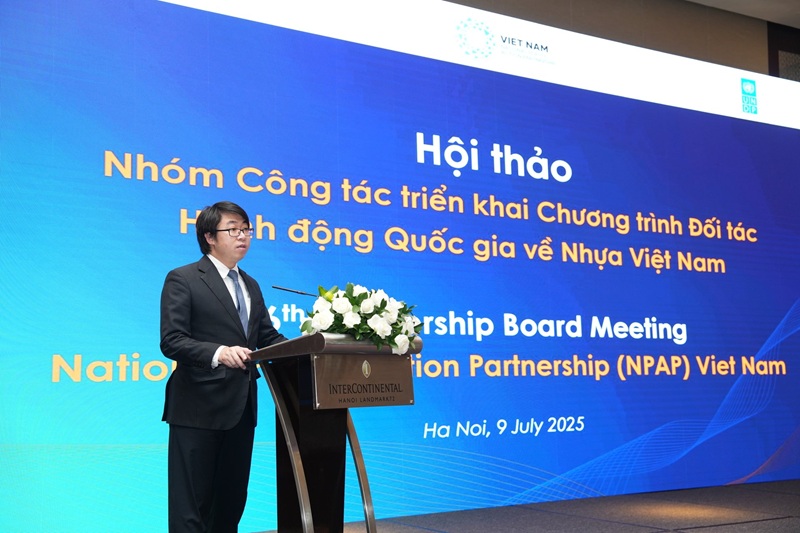
Deputy Director-General Vu Duc Dam Quang highlighted NPAP as a platform uniting government, businesses, NGOs, and international partners to tackle plastic pollution, emphasizing transparency in data and finance as key pillars
Within this global picture, Vietnam was once cited as one of the five countries contributing the most plastic waste to the oceans. Acknowledging both international pressure and the threat to its own sustainable development, the Vietnamese Government has sought to change course, gradually developing policy frameworks to reduce and manage plastics. A landmark step was the establishment of the National Plastic Action Partnership (NPAP) in 2020, led by the Ministry of Agriculture and Environment in collaboration with the WEF and UNDP.
Speaking at the opening of the sixth NPAP Working Group meeting, Deputy Director-General of the Department of International Cooperation (Ministry of Agriculture and Environment) Vu Duc Dam Quang emphasized that NPAP had created a platform bringing together government agencies, businesses, NGOs, and international partners to coordinate action against plastic pollution. He stated: “Transparency in data and financial instruments are the two pillars for Vietnam to build a more effective and coherent policy system for plastic management.”
After five years of implementation, NPAP has engaged more than 200 organizations, supported over 160 plastic pollution reduction projects, and promoted more than 570 innovative initiatives. UNDP Resident Representative in Vietnam Ramla Khalidi assessed that NPAP has helped integrate inclusiveness principles into national policy and mobilized more than USD 1 million for creative initiatives. According to her, what matters most is that Vietnam has demonstrated a shift in approach: from being labeled a “plastic hotspot” to becoming a regional frontrunner in testing multistakeholder cooperation models.
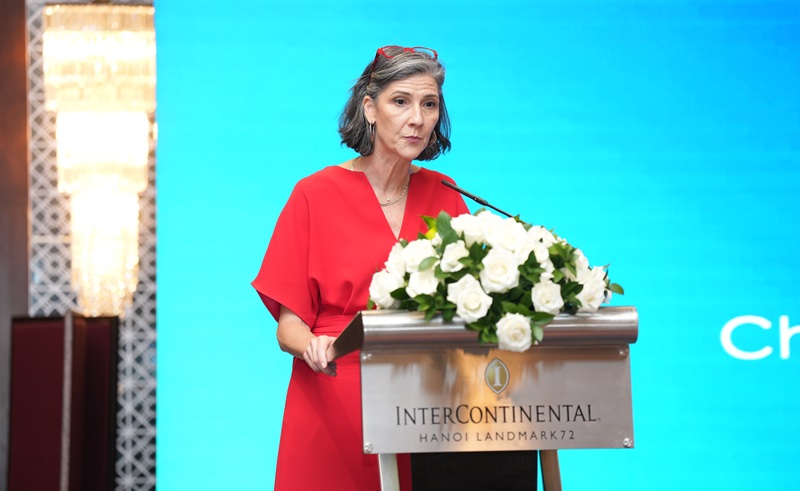
UNDP Resident Representative Ramla Khalidi noted NPAP’s success in integrating inclusiveness into national policy and mobilizing over USD 1 million for innovative initiatives, positioning Vietnam as a regional frontrunner
Looking ahead to 2025–2030, Vietnam has set ambitious goals: reducing marine plastic waste by 75%, eliminating single-use plastics in coastal provinces, and expanding the Extended Producer Responsibility (EPR) mechanism nationwide. These targets reflect the Government’s determination, with the Ministry of Agriculture and Environment playing a central role, not only in fulfilling domestic commitments but also in working alongside the global community in developing the Global Plastics Treaty.
From data to action: A strategic step in plastic management
One of the key topics discussed at the sixth NPAP Working Group meeting was the link between data and policymaking. Delegates agreed that without comprehensive, accurate, and transparent data, it would be difficult to design and implement effective plastic management solutions, especially as Vietnam enters the phase of implementing international commitments.
A report on plastic material flows, presented by Secretary General of the Vietnam Plastics Association Huynh Thi My drew significant attention. According to the figures, Vietnam produced about 12.9 million tonnes of plastic products in 2023, around 12% higher than commonly cited statistics. The demand for plastic scrap for recycling is expected to reach 4.2 million tonnes by 2030, with domestic sources potentially supplying up to 84%. However, Ms. Huynh Thi My pointed out serious shortcomings in the current data system: HS codes do not clearly differentiate virgin from recycled plastics, reporting is inconsistent, and measurement units lack standardization. “We need specific HS codes for recycled plastic pellets and updated national statistics; otherwise, it will be very difficult to design competitive and effective policies,” she stressed.
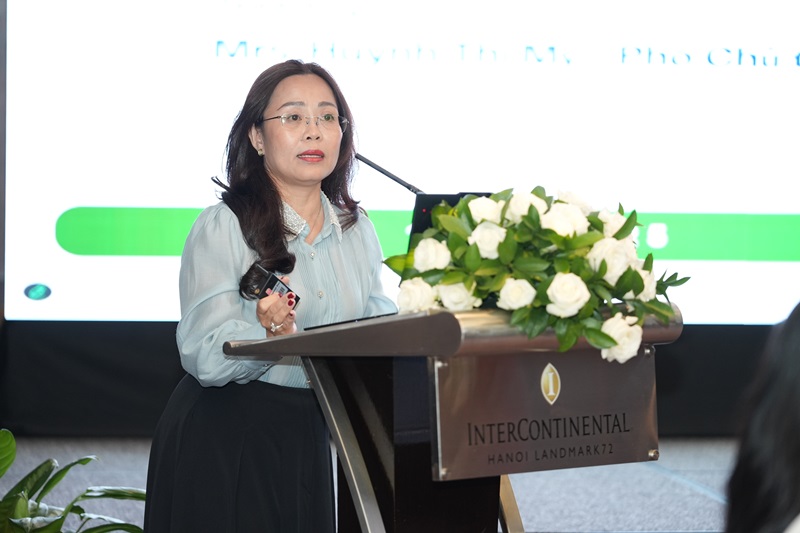
Ms. Huynh Thi My stressed gaps in the current data system, calling for specific HS codes for recycled plastics and updated statistics to design effective policies
The issue of data also extends to the informal waste collection workforce. Research by Dr. Nguyen Thai Huyen (Hanoi University of Architecture) found that the informal sector collects up to 80% of recyclable solid waste but remains largely unrecognized in waste management policies and the EPR mechanism. “This is the backbone workforce, yet their working conditions are precarious, lacking protection and legal status. Without integration into the formal system, they will remain highly vulnerable during the transition,” Dr. Huyen noted.
Sharing this concern, Bui Dang Xuan Mai, representative of Coca-Cola Vietnam, argued that short-term support for informal workers should focus on social protection and safe working conditions, but in the longer term, career transition pathways are necessary. In her view, professionalizing waste collection through technology-based models would improve efficiency while safeguarding livelihoods.
From an international policy perspective, Fanny Quertamp, expert at GIZ, introduced the “GO Circular” initiative to digitalize the plastics value chain. She explained that digital transaction systems not only enhance data transparency and material traceability but also create opportunities to integrate recycling facilities and informal workers into formal supply chains. “EPR will be more effective with digital platforms to ensure every transaction is documented and monitored,” she emphasized.
At the same time, scientific warnings on microplastics were also highlighted. Dr. Ngo Thi Thuy Huong (Phenikaa University) presented research showing that microplastics have been detected in water, sediments, seafood, and even human tissue in Vietnam. These particles can also transport heavy metals and antibiotics, raising health risks. She recommended cross-sectoral coordination between health, agriculture, fisheries, and environment to design policies addressing plastic pollution both as an environmental and public health issue.
Summarizing the discussion, Deputy Director-General of the Department of Environment (Ministry of Agriculture and Environment) Ho Kien Trung observed that while current studies had mapped plastic flows from input to output, more reliable data are still needed. He underlined: “We must treat data as the compass for policymaking. Without transparent data, instruments such as EPR or financial mechanisms will struggle to function effectively.”
Taken together, these perspectives underscore that Vietnam is gradually building an evidence-based approach aligned with international trends. Linking data from production, informal collectors, recycling businesses, and scientific research not only strengthens domestic management but also positions Vietnam to synchronize with global mechanisms, ready to enter the next stage of negotiations on the Global Plastics Treaty.
Multistakeholder mechanisms driving Vietnam’s circular plastics economy
A major highlight of the sixth NPAP Working Group meeting was the launch of the Policy Technical Group, a multistakeholder platform expected to strengthen Vietnam’s legal foundation and accelerate the transition toward a circular plastics economy. This is the third technical group under NPAP, following the Innovation & Finance Group and the Gender & Social Inclusion Group.
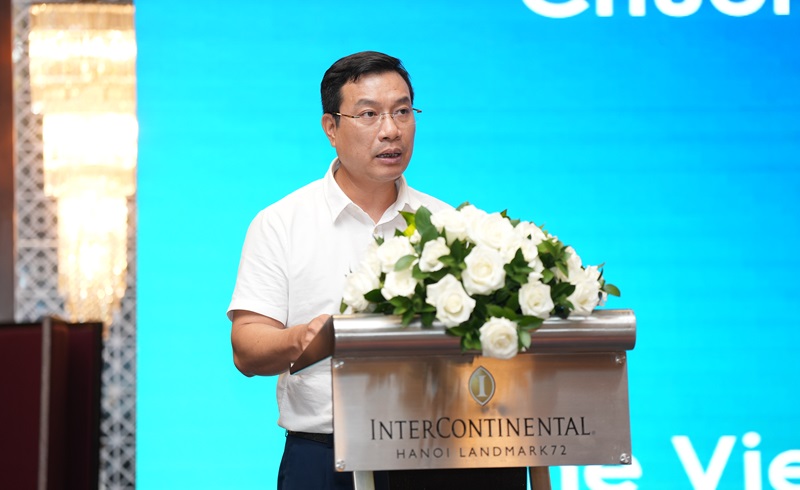
Deputy Director-General Ho Kien Trung, head of the Policy Technical Group, said the group will shape Vietnam’s circular plastics roadmap and support commitments to cut marine plastic waste by 75% and phase out single-use plastics in coastal provinces by 2030
According to the announced structure, the Policy Technical Group consists of 15 members, including seven government bodies such as the Department of Environment, the Department of Fisheries and Fisheries Surveillance, the Department of Seas and Islands, the Department of Legal Affairs, and the National EPR Office (all under the Ministry of Agriculture and Environment), alongside representatives from the Ministry of Health. The group also includes businesses (Coca-Cola Vietnam, Nestlé Vietnam, TOMRA, GRAC), international development partners (WWF, PRO Vietnam, CECR, the Embassy of Canada, the Vietnam Waste Recycling Association), and research institutions such as the Hanoi University of Natural Resources and Environment and the Hanoi University of Civil Engineering.
At the launch ceremony, Ho Kien Trung, Deputy Director-General of the Department of Environment, and Head of the Policy Technical Group, emphasized: “The group will play an important role in shaping Vietnam’s circular plastics roadmap. Its activities are designed to strengthen the policy foundations needed for long-term, systemic change, thereby contributing to the commitments of reducing marine plastic waste by 75% and eliminating single-use plastics in coastal provinces by 2030.”
According to Mr. Trung, the group’s core tasks include enhancing consistency in data use, studying successful policy models from other countries, and fostering connections among regulators, businesses, researchers, and international organizations. “We must create coordination mechanisms so that policies are not only correct in theory but also feasible in practice,” he added.
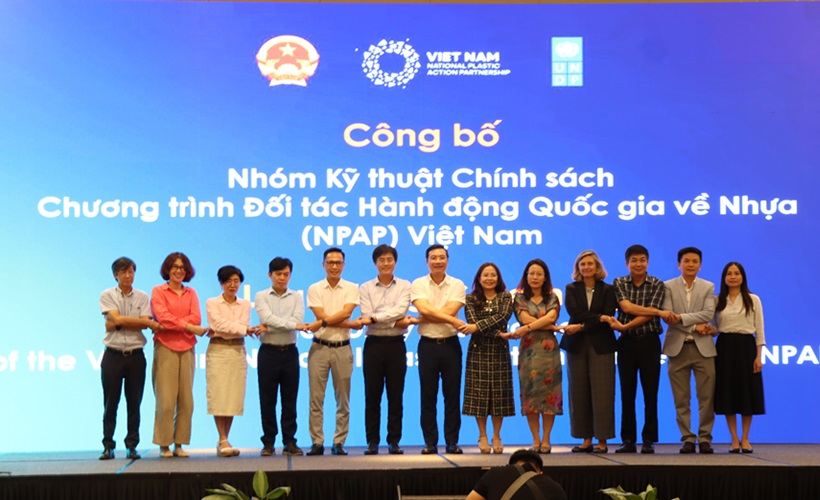
The sixth NPAP Working Group meeting officially launched the Policy Technical Group, the third multistakeholder platform under NPAP, complementing the Innovation & Finance and Gender & Social Inclusion Groups
The international community welcomed this step. Clemence Schmid, Director of the Global Plastic Action Partnership (GPAP) at the World Economic Forum, remarked: “The establishment of the Policy Technical Group is a clear demonstration of how Vietnam is pioneering in bringing stakeholders together to address plastic pollution. It sends a strong message that a developing country can become a model for multistakeholder cooperation based on data and inclusiveness.”
From the business perspective, Chu Kim Thanh, representative of PRO Vietnam (Packaging Recycling Organization Vietnam), affirmed that joining the group enables enterprises to contribute directly to policymaking. “We want to work with the Government to design mechanisms suited to Vietnam’s realities, while also learning from international experience to scale up effective recycling initiatives,” she said.
Other representatives also voiced their commitment. Le Ngoc Giang (National EPR Office) noted that the formation of the group highlights Vietnam’s focus on building institutions and laws as the cornerstone for effective plastics management. Meanwhile, Trong Minh, CEO of Craft, stressed that the group would serve as a forum where businesses could share perspectives, propose new models, and contribute to policy development.
A financial roadmap for circular plastics: Unlocking capital for green initiatives
One of the greatest challenges for Vietnam’s circular plastics transition is financing. Current policies, from Extended Producer Responsibility (EPR) to coastal plastics reduction programs, require substantial and long-term investment. Against this backdrop, the sixth NPAP Working Group meeting dedicated an entire session to introducing the development of a financial roadmap for circular plastics, jointly carried out by consultancy KLINOVA and KPMG Vietnam under the coordination of the Ministry of Agriculture and Environment.
The preliminary report outlined that the roadmap will assess financing needs through 2030, identify domestic and international investment opportunities, and propose sustainable funding mechanisms for plastic reduction initiatives. Tran Huu Nghia, Director of KLINOVA, explained that the research team had surveyed over 50 enterprises, financial institutions, and regulatory agencies to assess real capital demands. “Vietnam’s circular plastics initiatives currently face a shortage of medium- and long-term financing. We propose blended financial instruments, ranging from green credit and environmental bonds to investment guarantee funds, to mobilize additional private and international capital,” Mr. Nghia said.
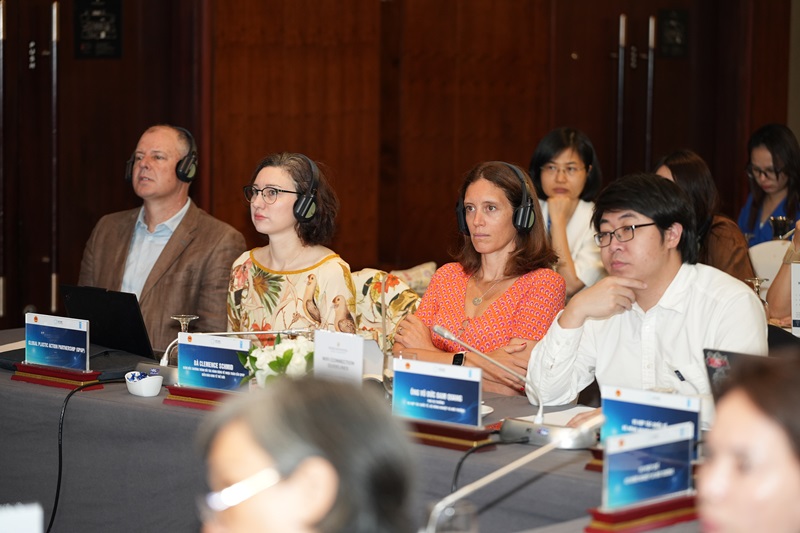
A dedicated session introduced the development of a financial roadmap for circular plastics, conducted by KLINOVA and KPMG Vietnam under the Ministry’s coordination
The report stressed that to meet the 2030 target of reducing marine plastic waste by 75%, Vietnam will need investments estimated in the billions of USD, with the state budget covering only part of this demand. Unlocking financial flows through private sector participation, commercial banks, and international funds is therefore an urgent priority.
From the state management perspective, Vu Duc Dam Quang, Deputy Director-General of the Department of International Cooperation, argued that the financial roadmap is a strategic step to connect policy objectives with practical resources. “No matter how well designed a policy is, it cannot be implemented without financing. The roadmap will help shape how capital is mobilized and allocated, ensuring sustainability for circular plastics programs,” he emphasized.
Ms. Ramla Khalidi commended the country’s proactive approach in developing a financial roadmap rather than relying solely on international support. She stressed: “This is an important signal that Vietnam, as a developing country, is willing to invest and act as a responsible partner with the global community. Vietnam has shown that it is not only a recipient of assistance but a proactive partner capable of designing financial tools to realize its international commitments.”
From the private sector, Nguyen Hoang Linh, Director of Nestlé Vietnam, stated that the company is ready to participate in green credit funds or public–private partnerships to invest in recycling technologies. “We need clear and transparent mechanisms on capital flows and financial incentives to commit to long-term investment. The financial roadmap will be the tool that gives businesses the confidence to engage,” he affirmed.
According to plan, the full financial roadmap will be released in the third quarter of 2025, accompanied by a list of priority projects and pilot implementation mechanisms. It will serve not only as a technical document but also as a political commitment by Vietnam to align environmental goals with financial markets.

The roadmap aims to mobilize billions of USD from the private sector and international organizations, turning circular plastics initiatives into practical solutions
With the Ministry of Agriculture and Environment directly coordinating, the roadmap is expected to become a key instrument to mobilize billions of USD from the private sector and international organizations, turning circular plastics initiatives from ideas into reality. More importantly, it demonstrates Vietnam’s determination not only to call for international cooperation but also to design practical solutions to realize shared goals.
As Ramla Khalidi noted, with the launch of the Policy Technical Group, NPAP Vietnam has taken another step toward becoming a sustainable cooperation mechanism led by Vietnam itself. She emphasized that this would provide the foundation for both effective domestic implementation and stronger preparation for the ongoing negotiations of the Global Plastics Treaty.
Thus, the launch of the Policy Technical Group was not merely an organizational step forward for NPAP. It also reaffirmed the central role of the Ministry of Agriculture and Environment in coordinating state agencies, businesses, and international partners, a clear demonstration of Vietnam’s strong commitment to developing circular plastics policies grounded in science, cooperation, and multistakeholder engagement.
Shaping Vietnam’s position at the international negotiating table
The second day of the sixth NPAP Working Group meeting (July 10, 2025) focused on a strategically significant agenda: consultation and preparation for the INC-5.2 negotiations on the Global Plastics Treaty, scheduled to take place in Geneva, Switzerland, in August 2025. This marks the continuation of the international process to develop a legally binding agreement on plastics, often described as a “Paris Agreement for plastic pollution.”
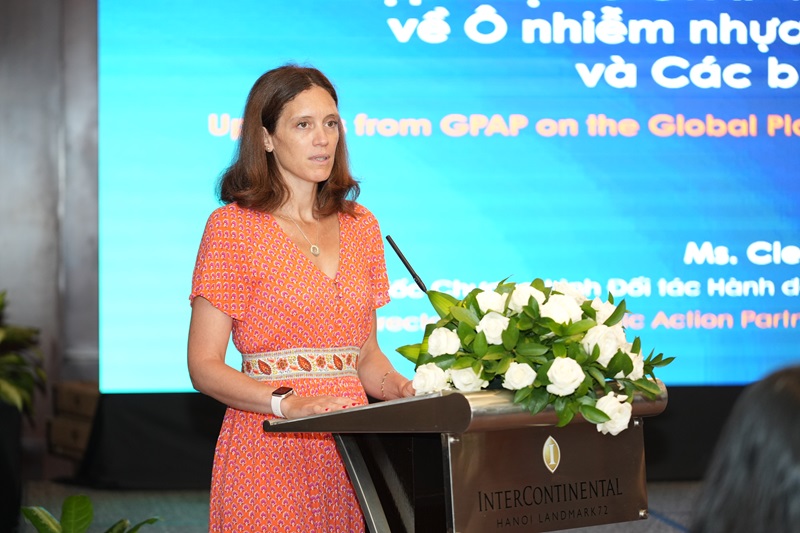
Ms. Clemence Schmid, GPAP Director at WEF, noted ongoing negotiations face disagreements on legal scope, product coverage, and financial support, stressing Vietnam’s active role in driving fair and effective outcomes
Providing an update on the negotiations, Clemence Schmid, Director of the Global Plastic Action Partnership (GPAP) at the World Economic Forum (WEF), noted that while countries have reached consensus on several key principles, major disagreements remain. These concern the degree of legal binding force, the scope of plastic products subject to regulation, and financial mechanisms to support developing countries. She stressed: “The active participation of countries like Vietnam will help balance interests and move the negotiations toward a fairer and more effective outcome.”
At the discussion session, Vu Duc Dam Quang, Deputy Director-General of the Department of International Cooperation, presented Vietnam’s official position. He emphasized that Vietnam strongly supports the early conclusion of a legally binding global agreement, while underscoring the need for flexible policy space to allow developing countries to implement commitments in line with national conditions. “Vietnam has been working to phase out single-use plastics, expand EPR, and establish a financial roadmap. We hope the global treaty will recognize and support these efforts, while creating mechanisms to mobilize international resources to ensure fairness,” Mr. Quang said.
This position received broad support from international partners. Ramla Khalidi remarked that Vietnam’s proactive step in convening consultations ahead of INC-5.2 demonstrated the Government’s clear commitment to linking domestic policies with global mechanisms. “This is how Vietnam asserts its position—not only as a follower, but as a contributor helping to shape the global process,” she underlined.
Experts also highlighted that Vietnam’s contributions carry regional significance. Tran Huu Nghia, Director of KLINOVA, observed: “When Vietnam speaks at the negotiating table, it represents not only national interests but also reflects the common concerns of many Asia–Pacific countries, which face intense pressure from plastic pollution.”
As coordinator of NPAP, the Ministry of Agriculture and Environment is seen as a crucial bridge between domestic policymaking and international negotiations. Key themes discussed during the workshop—ranging from data transparency and financial roadmaps to the EPR mechanism—were all integrated as evidence-based inputs for Vietnam’s delegation in preparing for INC-5.2. This approach illustrates how Vietnam is building from the domestic level outward, ensuring that its proposals in Geneva will rest on solid practical foundations.
Vietnam’s active participation in the negotiations is not only a matter of diplomacy but also an opportunity to access technologies, financial resources, and international expertise to advance its domestic circular plastics agenda. More importantly, it provides a pathway to translate national commitments into action: cutting marine plastic waste by 75% by 2030, eliminating single-use plastics in coastal areas, and advancing a circular economy aligned with the Net Zero target.
By proactively preparing for INC-5.2, Vietnam has demonstrated responsibility, foresight, and long-term vision. From Hanoi to Geneva, Vietnam’s voice is expected to play a constructive role in shaping a global agreement that is fair, comprehensive, and workable.
Vietnam moving forward with the world
After two days of intensive discussions, the sixth NPAP Working Group meeting concluded with a clear message: Vietnam is not only acting nationally but is placing international cooperation at the center of its strategy to combat plastic pollution. The discussions—spanning data transparency, financial roadmap design, the launch of the Policy Technical Group, and consultations on the Global Treaty—together formed a coherent picture of how Vietnam is preparing to enter a new phase in the fight against plastic pollution.
Looking back on five years of NPAP implementation, Vietnam has laid a strong foundation by mobilizing broad participation from government agencies, businesses, international partners, academia, and communities. UNDP Resident Representative Ramla Khalidi noted that NPAP has become a platform for multi-stakeholder cooperation, helping Vietnam emerge as one of the regional frontrunners in building collaborative models against plastic pollution.
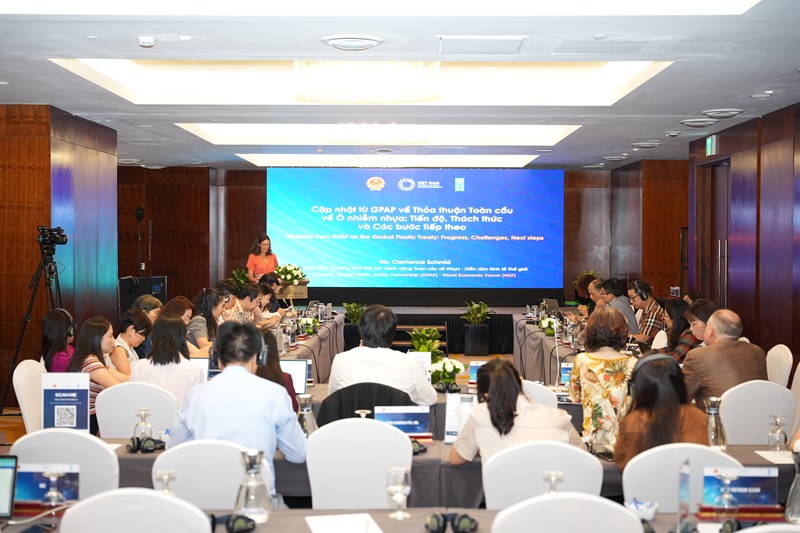
Over five years, NPAP has built a strong foundation by engaging government, businesses, international partners, academia, and communities in Vietnam’s circular plastics efforts
Challenges, however, remain. Plastics data has yet to be standardized, the legal framework is still fragmented, financial resources are limited, and the recognition of informal workers is only at an early stage. Ho Kien Trung, Deputy Director-General of the Department of Environment, candidly pointed out: “What we need now is to further refine coordination mechanisms and strengthen data transparency, so that every policy is built on solid and feasible foundations.”
The outlook for the next phase is anchored in three pillars. First, the Policy Technical Group will function as a standing forum to ensure that recommendations on legislation, data, and plastics management are continuously researched, discussed, and updated. Second, the financial roadmap will unlock the capital needed, drawing in private sector and international participation. Third, active involvement in the Global Plastics Treaty will enable Vietnam to align domestic policies with international legal frameworks, while reinforcing its status as a reliable and responsible partner.
At the heart of this process lies the Ministry of Agriculture and Environment, which is not only coordinating domestically but also representing Vietnam’s voice in global negotiations. The Ministry’s proactive engagement with UNDP, WEF, and development partners has enabled NPAP Vietnam to emerge as a highly regarded model with the potential to inspire regional and global replication.
As the workshop concluded in Hanoi, delegates shared a common perspective: the road ahead remains long, but Vietnam has already laid strong foundations. From national targets to global commitments, from supporting informal waste workers to designing long-term financial mechanisms, Vietnam is demonstrating that it is not merely a country affected by plastic pollution, but a pioneering partner in tackling this global challenge.
Ngoc Huyen


